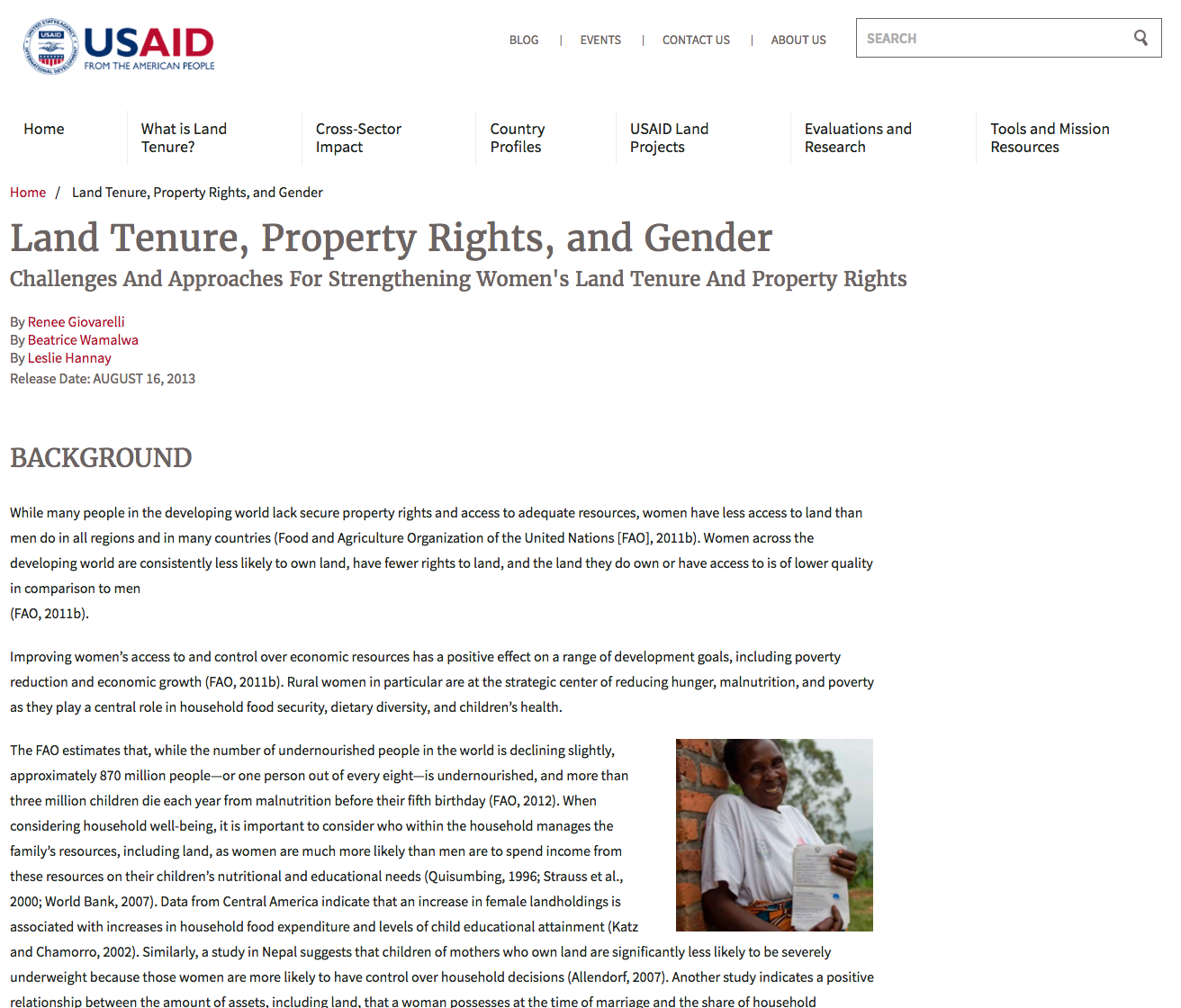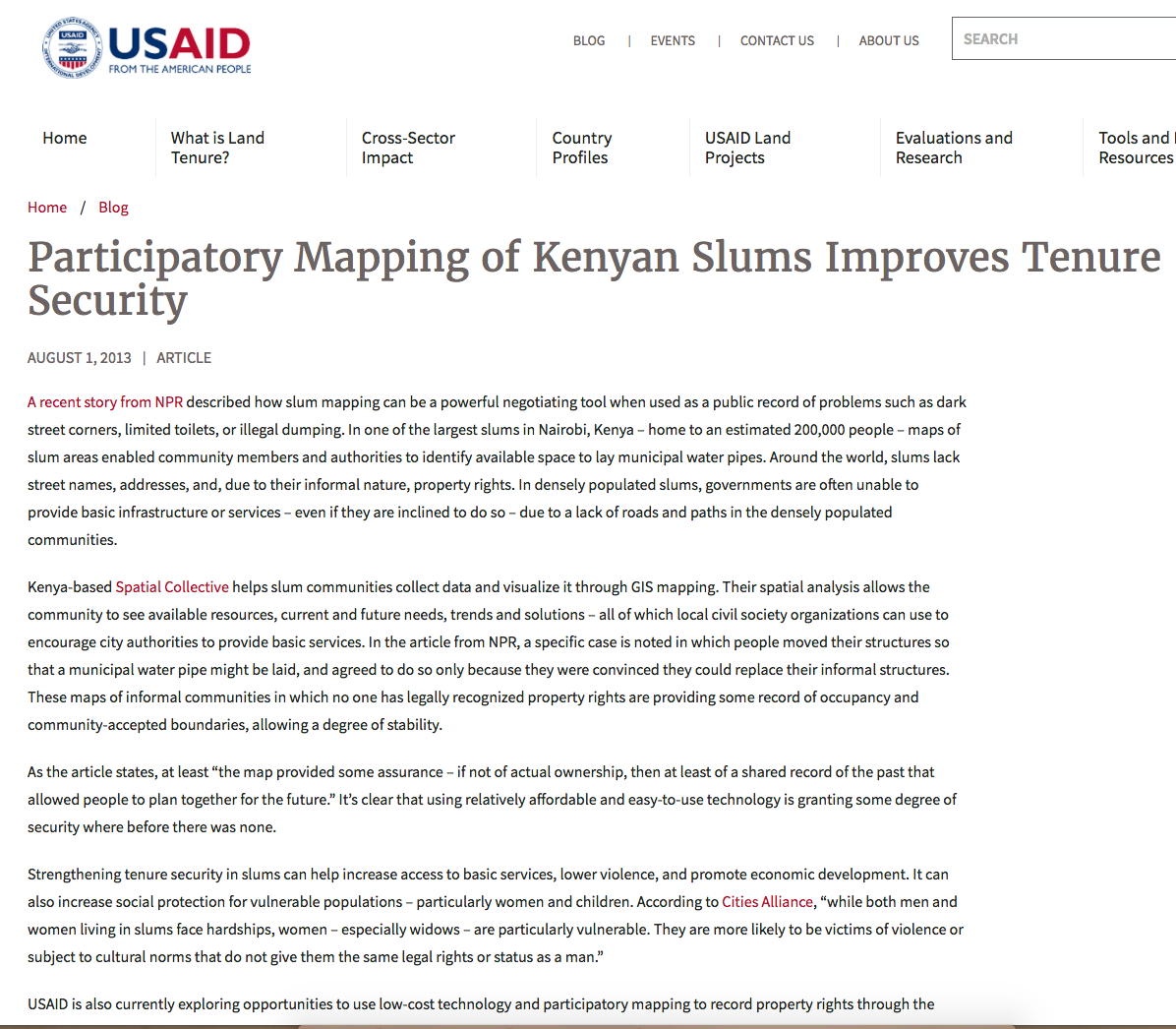Location
About Us
We envision a world in which land governance systems, both formal and informal, are effective, accessible, and responsive for all. This is possible when land tenure and property rights are recognized as critical development issues and when the United States Government and its development partners demonstrate consistent attention and a firm commitment to supporting coordinated policies and programs that clarify and strengthen the land tenure and property rights of all members of society, enabling broad-based economic growth, gender equality, reduced incidence of conflicts, enhanced food security, improved resilience to climate change, and effective natural resource management.
Mission Statement
The USAID Land Tenure and Resource Management (LTRM) Office will lead the United States Government to realize international efforts—in accordance with the U.S. Government’s Land Governance Policy—to clarify and strengthen the land tenure and property rights of all members of society—individuals, groups and legal entities, including those individuals and groups that are often marginalized, and the LTRM Office will help ensure that land governance systems are effective, accessible, and responsive. We will achieve this by testing innovative models for securing land tenure and property rights and disseminating best practice as it relates to securing land rights and improving resource governance within the USG and our development partners.
Members:
Resources
Displaying 126 - 130 of 440India Targeting Rural Land Insecurity with State-Level Programs and New National Bill
A guest post by Ashok Sircar, India Program Director of Landesa, a USAID partner and global organization that partners with governments to help secure land rights of the poor. Follow them @Landesa_Global
There is growing recognition that India cannot solve many of its critical development challenges if it doesn’t help the 20 million landless rural families and the millions more who lack legal rights to the land they till.
USAID and the Government of Ethiopia launch the Land Administration to Nurture Development (LAND) Program
In June, Ethiopian State Minister of Agriculture Ato Sileshi Getahun joined USAID/Ethiopia Mission Director Dennis Weller, to officially launch the Land Administration to Nurture Development (LAND) project. The LAND project builds on the success of two previous USAID projects that supported the certification of rural land rights, the reform of federal and regional laws governing land administration and land use, and the strengthening of government capacity to administer these rights.
Land Tenure, Property Rights, and Gender
While many people in the developing world lack secure property rights and access to adequate resources, women have less access to land than men do in all regions and in many countries (Food and Agriculture Organization of the United Nations [FAO], 2011b). Women across the developing world are consistently less likely to own land, have fewer rights to land, and the land they do own or have access to is of lower quality in comparison to men
(FAO, 2011b).
Global Farms Race: Opportunity to Improve Land Governance
By Dr. Gregory Myers, USAID Division Chief, Land Tenure and Property Rights On July 30, I had the pleasure of joining Landesa President Tim Hanstad at Global Washington in Seattle for a rich discussion of the Global Farms Race: Implications of Food Security, Poverty, and Foreign Investment. At the heart of this conversation are the rights of communities and individuals to decide for themselves how to use and profit from land. Do they possess clear and documented land and resource rights? Who has the power to make decisions?
Participatory Mapping of Kenyan Slums Improves Tenure Security
A recent story from NPR described how slum mapping can be a powerful negotiating tool when used as a public record of problems such as dark street corners, limited toilets, or illegal dumping. In one of the largest slums in Nairobi, Kenya – home to an estimated 200,000 people – maps of slum areas enabled community members and authorities to identify available space to lay municipal water pipes. Around the world, slums lack street names, addresses, and, due to their informal nature, property rights.




